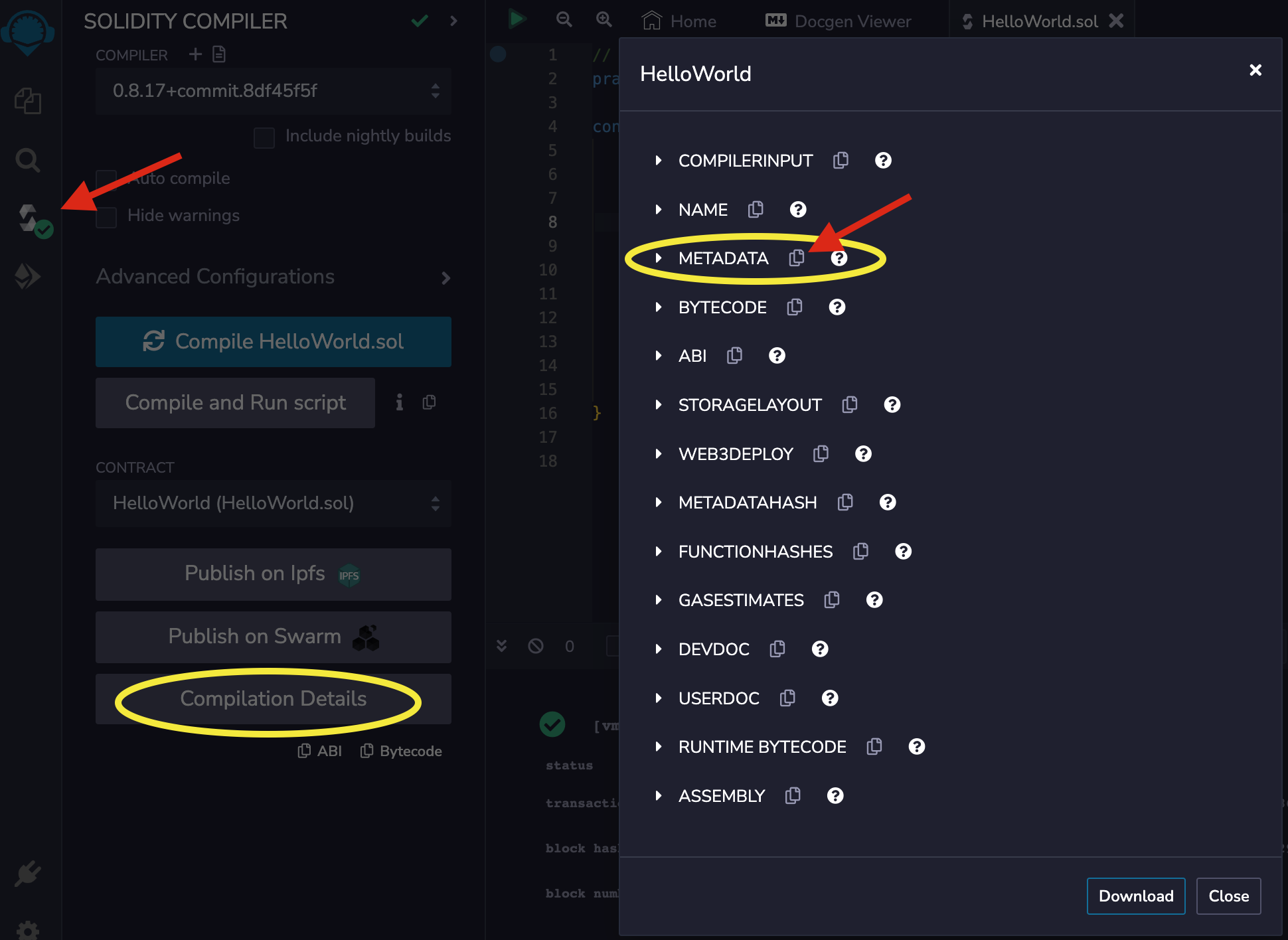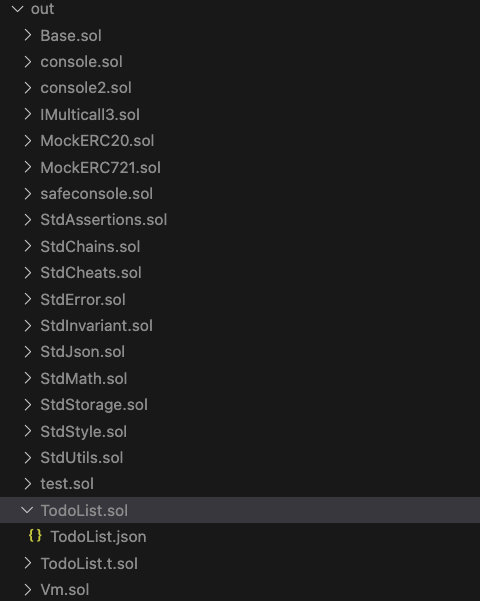Note: This is an initial beta release, and both the HashScan user interface and API functionalities are scheduled for enhancements in upcoming updates.
Smart Contract Source Code
This is the actual code for your smart contract written in Solidity. The source code includes all the contract’s functions, variables, and logic. It’s crucial for the verification process, where the deployed bytecode is compared to the compiled bytecode of this source code.Example:
A simpleHelloWorld Solidity smart contract:
The Metadata File
When you compile a Solidity smart contract, it generates a JSON metadata file. This file contains settings used when the smart contract was originally compiled. These settings can include the compiler version, optimization details, and more. The metadata file is crucial for ensuring that the bytecode generated during verification matches the deployed bytecode.Metadata is not part of the EVM spec because it’s handled externally by compilers and tools like Sourcify. See Sourcify’s Metadata documentation here.You have options for generating the metadata file. The recommended skill levels for each option are in parentheses. Choose the option that best fits your experience with smart contracts:
Remix IDE (beginner)
Remix IDE (beginner)
To create a metadata file in Remix, compile your smart contract and the compiled artifacts will be saved in the 
artifacts/ directory and the <dynamic_hash>.json metadata file will be under artifacts/build-info and used for verification. Alternatively, you can copy and paste it from the Solidity compiler tab. Please see the image below.
Hardhat (intermediate)
Hardhat (intermediate)
To create the 
.json metadata file with Hardhat, compile the contract using the npx hardhat compile command. The compiled artifacts will be saved in the artifacts/ directory and the <dynamic_hash>.json metadata file will be under artifacts/build-info and used for verification. See Sourcify Hardhat metadata documentation here.
build-info JSON file.Foundry (intermediate)
Foundry (intermediate)
To create the metadata file with Foundry, compile the contract using the 
forge build command. The compilation outputs to out/CONTRACT_NAME folder. The .json file contains the metadata of the contract under "rawMetadata" and "metadata" fields. However, you don’t need to extract the metadata manually for verification. See Sourcify Foundry metadata documentation here.
.json metadata and the Solidity source file.Solidity compiler (advanced)
Solidity compiler (advanced)
You can pass the Write the metadata into a file withNote:
--metadata flag to the Solidity command line compiler to get the metadata output printed.solc vs. solcjs📣 solcjs will not generate the metadata using the --metadata flag. The option is only supported in solc.HelloWorld smart contract:
Deployed Smart Contract Address
Even though Hedera uses the0.0.XXXXXXX account ID format, it accommodates Ethereum’s address format for EVM compatibility. Once your smart contract is deployed on Hedera’s network, you’ll receive an address like the one below. This serves as your deployed smart contract address.
Example:
An example deployed EVM smart contract address:Note: The
0.0.XXXXXXX smart contract address format can not be used in the verification process.Different Instances of Sourcify: Hedera’s Custom Approach
It’s important to note that multiple instances of Sourcify do exist, tailored to the specific needs of different networks. Hedera runs an independent instance of Sourcify, distinct from the public-facing Sourcify.dev instances like Etherscan and other Etherscan clones. Running an independent instance of Sourcify allows Hedera to have more control over the verification process, tailoring it to the custom needs of the Hedera ecosystem. For instance, after a testnet reset, Hedera requires the ability to reset testnet smart contract verifications - something Sourcify.dev cannot accommodate.Verified Smart Contracts Testnet Reset: When the Hedera Testnet is reset, the contract must be redeployed and verified. The contract will receive a new contract EVM address and contract ID. The smart contract will need to be verified using the new addresses.An essential detail to remember is that smart contracts verified on Hedera’s Sourcify instance won’t automatically appear as verified on Sourcify.dev or vice versa. Users interested in having their smart contract recognized across multiple platforms should consider verifying on both instances.